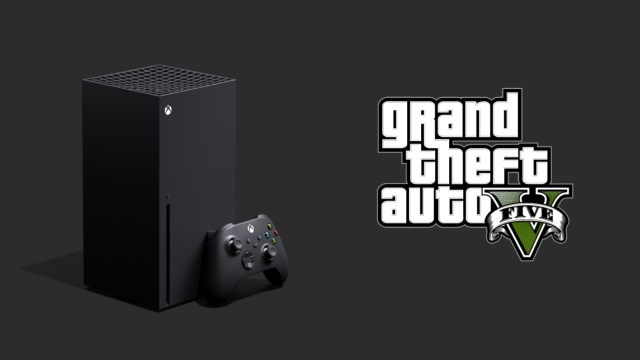
AMD Ryzen 5000 Series Revealed World No.1 Gaming Processor
br />div>Dr. Lisa Su announcing that AMD's Ryzen 5000 will officially be at the heart of your next gaming machine. AMD's been on a steady upward trajectory in the Steam Hardware Survey for the last few years, and they recently cracked market share of more than a quarter of all PCs running Steam, which, like, if you're a PC gamer, you've probably got Steam installed. That is a huge number, and it's gonna get bigger. We knew that AMD would be announcing next gen Ryzen 5000 series processors based on their Zen 3 architecture. But we thought it was going to be the evolutionary. This is more like revolutionary. Not only has Zen 3 improved the instructions per clock rate by 19% over Zen 2, but it manages to do so with a claimed zero additional socket power and the exact same TDP as before.
On top of that, AMD has done away with the compute complex, which means that now, all 8 cores on the die are able to communicate directly with not only each other but also with their shared caches. So no more 2x16 Megabyte cache. Now all of the cores have access to the entire 32 Megabytes per die. That has huge implications for latency-sensitive applications like games. Four Zen 3 CPUs were announced today, and they followed the same naming format that AMD set with Ryzen 3000, except that we skipped the whole 4000 thing, cause desktop mobile something something. Don't worry, it's all synced up now. So there's 16 cores at the top, 6 cores at the bottom for now, and they're all set to launch on store shelves together on November 5th.
That's right, a hard launch. And for the first time in a long, long time, AMD has seen fit to increase the pricing of their offerings above Intel's, a ballsy move that may just work out for them. Honestly, I'm not even mad, as long as they pour that extra cash into R and D and keep PC gaming's traditional cycle of excitement followed shortly by buyer's remorse well and alive. One disappointment is that AMD still hasn't managed to cross that magical 5 Gigahertz milestone. But boost clocks are creeping upward with 4.6 Gigahertz being the slowest of the bunch, and when you combine that with the arguably more important massive per clock performance improvements, you've got a recipe for speed. Based on the slides that AMD showed off, we're expecting gamers to see anywhere from a 20 to 50% improvement in performance over Ryzen 3000.
Now I know that matching Intel's gaming performance might not seem like that big of a deal to some of you out there, but it is. AMD fans and fans of competition in the CPU space in general have been salivating for over three years now watching AMD's trajectory versus Intel's trajectory, waiting for them to meet so that, that's right, it was gonna happen eventually, AMD would end up on top again. I mean, how long's it been? Core 2, 14 years?
This is what AMD was talking about when they called Ryzen disruptive. This is industry-changing. And you might think that I'm being hyperbolic here, so why don't we change gears and now Intel for a moment? 10th gen core is still using Intel's, to put it gently, tried and tested 14-nanometer process, which, to be fair to Intel, does have better density than most competing 10-nanometer processes. But the problem is that TSMC's seven-nanometer process that AMD is using is roughly as dense as Intel's 10-nanometer, which Intel is already shipping in laptops, so, you know, you might think Intel should be able to dust themselves off with the upcoming 11th gen core series, code name Rocket Lake, and come charging back into the fight, right? Maybe.
Thing is, Intel's gonna need to pull a serious rabbit out of their hat at this point because they've thrown every engineering solution at this problem, up to, and including, actually shaving down the physical thickness of their CPU dies to improve thermal conductivity so they can squeeze out a little bit more performance. And, making matters worse, Rocket Lake is rumored to be yet another 14-nanometer CPU, although it's also rumored to be based on the same core architecture as Tiger Lake, just embiggened, which means we may see a die area increase, and consequently, a power and thermal output increase. What's that gonna mean? I don't know, but it'll gain PCI Express gen four just in time for that to become important as next generation games start shipping with DirectStorage, requiring high-speed SSDs for data streaming while gaming, and it's coming in Q1 next year.
So, in summary, the best case scenario is Intel's missing the holiday season this year, and the worst case is they're missing the holiday season next year. So how is AMD able to pull of these kinds of gains? They tell us that, thanks to their chiplet process, they're able to run development on future CPUs in parallel. And with Zen 3, they're exemplifying that by simply plonking the new dies onto the same packages that Zen 2 used, complete with the same I/O die as before. That also means that Zen 3 is gonna drop right into a 500 series motherboard, running the BIOS that you may very well already have installed on your board. Crazy, right? Although you will wanna update to the latest, when you get a chance, for the best results.
As for the rest of the backwards compatibility story, 300 series motherboard owners will need to upgrade to a new board, but 400 series owners can expect a BIOS update in January to enable support for the new CPUs. Now AMD tells us that overclocking is gonna be similar to what we're used to right now, with memory being the primary focus, but they gave us a little tease by saying, and I quote, "It will be a breeze to set a variety of world records of your choosing." What a terrifying thought for anyone who's wearing an Intel badge at work right now. This is kinda like the old days, when, by the time game consoles got through their development process and launched, they had already been outstripped because PC technology was going so fast. Like, it's happening. And I think it's fair to say that we've got AMD to thank for that. Okay, and you, you leather-jacket-wearing rogue, you. But don't get comfortable.



















Remember Keep Comments Respectful And Don't Enter Any Spam Links!